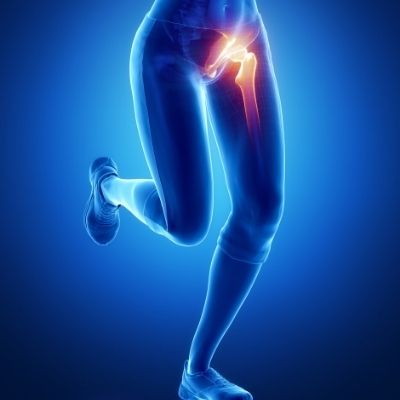Hip Pain Treatment In Nagpur

Hip Pain Treatment In Nagpur
What Causes Hip Pain?
Hip pain can arise from a range of issues, including:
- Arthritis: Osteoarthritis or rheumatoid arthritis can cause joint degeneration, leading to pain and stiffness.
- Tendonitis: Inflammation of the tendons surrounding the hip joint can result in significant discomfort.
- Bursitis: Inflammation of the fluid-filled sacs (bursae) around the hip joint often causes pain, especially when moving.
- Injuries: Fractures, sprains, or strains from accidents or overuse can result in hip pain.
- Muscle Imbalances: Weak or tight muscles around the hip can contribute to pain and discomfort.
Non-Surgical Hip Pain Treatments
Physical Therapy (PT)
One of the most effective non-surgical treatments for a hip pain is physical therapy. A trained physical therapist can guide you through targeted exercises designed to strengthen the muscles around your hip joint, improve flexibility, and increase your range of motion. PT can help you regain function and reduce pain naturally over time.Medications for Pain Relief
For temporary pain relief, over-the-counter medications such as acetaminophen or NSAIDs (like ibuprofen) can reduce inflammation and alleviate discomfort. In some cases, your doctor may prescribe stronger pain medications or muscle relaxants to address more severe symptoms.Corticosteroid Injections
When pain is severe or persistent, corticosteroid injections directly into the hip joint can provide temporary, effective relief by reducing inflammation. These injections can allow you to regain mobility and continue physical therapy without the limitation of pain.Cold and Heat Therapy
Using ice or heat packs can also provide relief. Cold therapy helps reduce inflammation and swelling, while heat therapy can improve circulation, relaxing tight muscles and easing pain. Alternating between cold and heat can help manage discomfort at home.Lifestyle Changes
Simple modifications can prevent further strain on your hips. Maintaining a healthy weight can reduce the load on your hip joints, and avoiding high-impact activities can help minimize stress on the joint. Walking aids like canes or walkers may also provide added support when moving.
Surgical Options for Severe Hip Pain
In cases where conservative treatments don’t offer relief or if your hip joint is significantly damaged, surgical options may be considered. These treatments are typically reserved for patients with advanced joint issues or those suffering from severe hip pain that affects their daily life.
Hip Arthroscopy
This minimally invasive surgery involves making small incisions and using a camera to guide the surgeon in repairing or removing damaged tissues within the hip joint. Hip arthroscopy can be used to address issues like torn cartilage, damaged ligaments, or labral tears.Hip Replacement Surgery
When the hip joint is severely damaged, especially due to arthritis, a total hip replacement may be necessary. During this procedure, the damaged hip joint is replaced with an artificial joint, providing long-lasting pain relief and improved function.Hip Fusion Surgery
In cases of advanced arthritis where hip replacement may not be an option, hip fusion surgery may be recommended. This surgery fuses the bones of the hip joint, which eliminates pain but also limits movement.
Preventing Hip Pain: Tips for Long-Term Health
While treatment is crucial for managing hip pain, prevention is key to avoiding future issues. To protect your hips and maintain mobility:
- Exercise Regularly: Incorporate strength and flexibility exercises to keep the muscles around your hip strong and flexible.
- Maintain a Healthy Weight: Extra weight puts unnecessary stress on your hips, leading to joint wear and tear.
- Wear Proper Footwear: Shoes with good arch support and cushioning can help alleviate strain on your hips and improve posture.
- Avoid High-Impact Activities: Engaging in activities that stress the hip joint, such as running on hard surfaces, can accelerate wear and tear.
